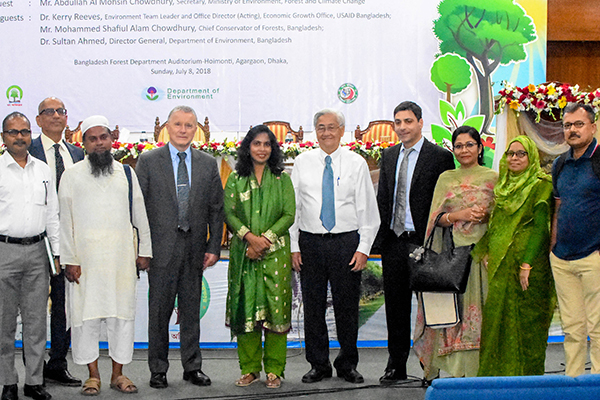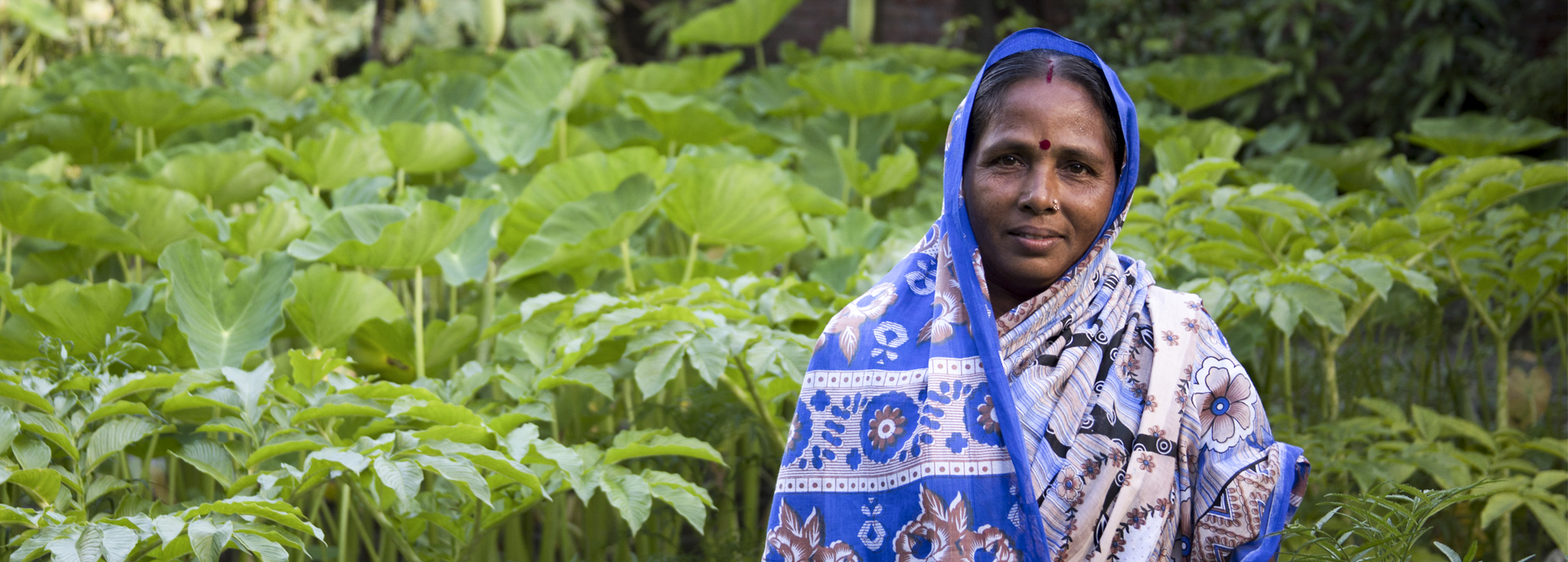
Celebrating the Climate-Resilient Ecosystems and Livelihoods Project
Six-Year USAID Project Leaves Accolades and Successes Behind
The Climate-Resilient Ecosystems and Livelihoods (CREL) project diversified incomes derived from sustainable natural resource management for 360,000 people and helped 875 villages plan actions to sustain or enhance their natural resource base in the face of pending impacts from climate change. CREL also greatly advanced the effectiveness of co-management in protecting nearly 764,000 hectares of critical forest and wetland habitat.
CREL, which worked its magic in four ecosystems — forest protected areas, wetlands and ecologically critical areas of Bangladesh — is closing after six successful years. Winrock, USAID and Bangladesh’s Ministry of Environment, Forest and Climate Change (MoEFCC) celebrated the project’s successful conclusion at a ceremony held at the Bangladesh Forest Department Auditorium. Winrock’s Senior Director of Clean Energy, Environment and Water Amit Bando welcomed the guests and Chief of Party Dr. John A. Dorr highlighted the project’s journey and presented its key accomplishments, successes and impacts.
The six-year program (2012-2018) promoted climate-resilient, sustainable and equitable natural resource co-management that improved and protected forest and wetland habitats and biodiversity, and diversified livelihoods that are increasing the incomes and reducing the dependency of people on the natural resources of protected areas. This reduction in dependency on the (often illegal) extraction of natural resources conserves and protects landscapes and biodiversity.
“The CREL project is ending but there is still a lot of work ahead of us,” said MoEFCC Secretary Abdullah Al Mohsin Chowdhury. “Co-management organizations will continue their hard work with the proper help from our departments.” Chowdhury also expressed his gratitude to USAID for the organizations’ financial and technical assistance in protecting Bangladesh’s biodiverse wetlands, forest ecosystems and natural resources and helping the government develop long-term plans for sustainable natural resource management.
“CREL is one of the largest USAID projects in Bangladesh and will leave behind so many successes, especially in protected areas’ policy reform,” said Dr. Kerry Reeves, environment team leader and acting office director of USAID/Bangladesh’s Economic Growth Office. Reeves congratulated the Ministry and thanked it for its cooperation.
“Each project leaves behind successes and failures, but for CREL, the number and scope of success is very high,” said Mohammed Shafiul Alam Chowdhury, chief conservator of forests in Bangladesh. He assured the co-management organizations that were supported by CREL that the Forest Department will act as their guardian and support.
“CREL supported the enactment of ecologically critical area rules, 2016. Now is the time to implement these rules,” said Dr. Sultan Ahmed, director general of the Department of Environment.
The ceremony concluded with a performance of folk songs and dance promoting nature conservation and environmental protection awareness by a popular community performance group from Chandpai, Khulna.
More than 120 participants attended the closeout ceremony.
Related Projects

